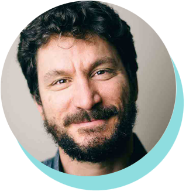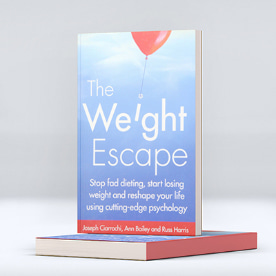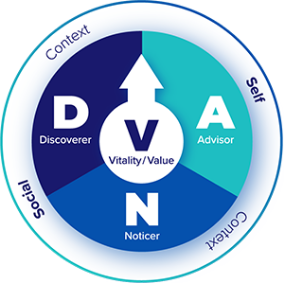DNA-V
Help those you care for adapt positively to change
The model that promotes resilience, mindfulness, and well-being.
What does DNA-V stand for?
Who are we?



Our books
Change happens – with our new book for adults based on the DNA-V model, What Makes You Stronger, you can discover how to face it, and grow stronger in the process. To be released July 1st, 2022.
Our other titles include Your Life, Your Way, The Thriving Adolescent, and Get Out of Your Mind & Into Your Life for Teens – for young people. And for adults, The Weight Escape, and Mindfulness, Acceptance, and Positive Psychology.



How is the DNA-V model used?
A forerunner in psychological flexibility, DNA-V is being used around the world to help people live with meaning and passion. Medical professionals, therapists, teachers, counselors, coaches, and those they care for like its simplicity and easy-to-understand style. The model is theoretically robust, and carries depth right down to the level of human evolutionary adaptation.
Policy makers in fields such as education and workplace performance use the model, and it is being researched by academics in disciplines from evolutionary science to developmental psychology. Training in DNA-V and related models is available for your professional development.
What are the benefits of DNA-V?
The purpose of DNA-V is to help people develop flexible strength – the ability to persist in important things they care about, and to change behaviour that’s making their life worse. The model has been used to help young people learn the skills they need to be the best they can be. The model is being used with a variety of adult populations, including professional athletes, managers, parents, teachers, and other members of the public.
DNA-V, the contextual model of flourishing
D, N, and A stand for three types of behaviour that are embedded within our self and social contexts. Ideally, we use them to build values and vitality (V).
Discoverer (D) refers to trial-and-error behaviour that functions to expand and build skills, resources, and social networks.
Noticer (N) refers to behaviour that functions to increase the awareness of experience.
Advisor (A) refers to verbal behaviour that functions to save people from the need for trial-and-error learning so they can navigate efficiently and safely through the world.
The model guides a practitioner to develop people’s skilled use of D, N, and A, and improve their ability to flexibly shift behaviours, depending on what they value and what the situation permits and demands.

